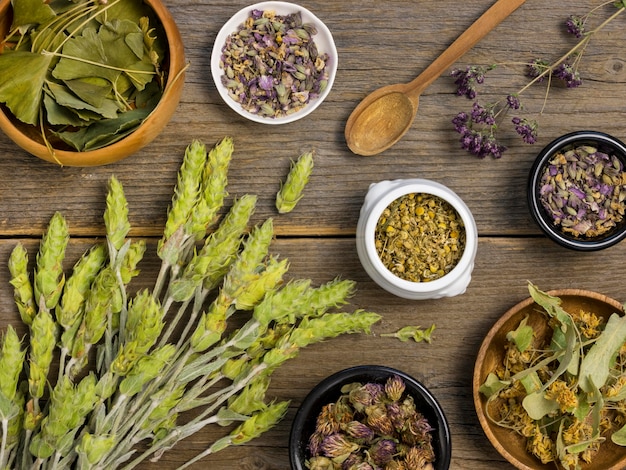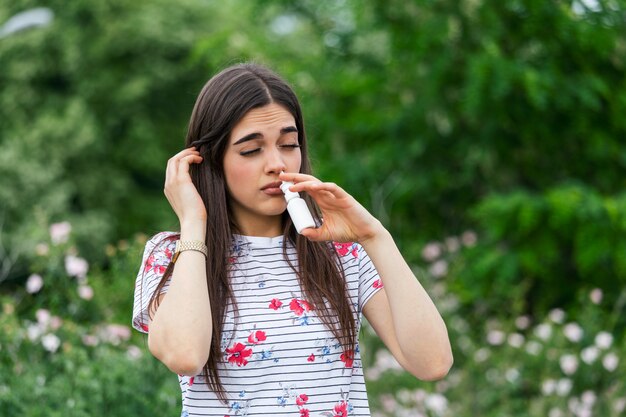Ask Ayurvedic doctor a question and get a consultation online on the problem of your concern in a free or paid mode. More than 2,000 experienced doctors work and wait for your questions on our site and help users to solve their health problems every day.
Kerala Ayurvedic Medicine for Allergic Rhinitis – Natural Relief & Healing

Introduction to Kerala Ayurvedic Medicine for Allergic Rhinitis
Allergic rhinitis, commonly known as hay fever, is an inflammation of the nasal passages triggered by allergens such as pollen, dust, or animal dander. Ayurveda, particularly the traditional practices from Kerala, offers natural remedies to manage and alleviate the symptoms of allergic rhinitis. These treatments focus on balancing the body's doshas, enhancing immunity, and detoxifying the system. Kerala’s Ayurvedic medicine provides holistic solutions that target the root causes of allergic reactions, offering lasting relief from sneezing, nasal congestion, and itchy eyes.
Don't wait or self medicate. Start chat with Doctor NOW
Ayurvedic Approach to Allergic Rhinitis
In Ayurveda, allergic rhinitis is seen as an imbalance of the Vata and Kapha doshas, which are responsible for the respiratory and immune systems. When these doshas are aggravated, they lead to symptoms like congestion, sneezing, and runny nose. Kerala Ayurvedic practitioners treat allergic rhinitis by focusing on restoring doshic balance through herbal remedies, dietary changes, and lifestyle modifications. The goal is to boost the body’s immunity, cleanse the sinuses, and reduce inflammation.
Key Kerala Ayurvedic Herbs for Allergic Rhinitis
1. Tulsi (Holy Basil)
Tulsi, revered as a sacred herb in Ayurveda, is known for its anti-inflammatory, antimicrobial, and immune-boosting properties. It helps clear the airways, reduce nasal congestion, and alleviate inflammation in the respiratory system. Drinking Tulsi tea or using it as an ingredient in nasal sprays can provide significant relief from allergic rhinitis symptoms.
2. Shallaki (Boswellia)
Shallaki, also known as Boswellia, is renowned for its anti-inflammatory and analgesic properties. It helps reduce the swelling in the nasal passages and is often used in Kerala Ayurvedic medicine to treat respiratory conditions. Shallaki is particularly beneficial for individuals suffering from chronic nasal congestion associated with allergic rhinitis.
3. Haridra (Turmeric)
Haridra, or turmeric, is a powerful anti-inflammatory and antioxidant herb widely used in Kerala’s Ayurvedic treatments. It helps to cleanse the sinuses, reduce inflammation, and strengthen the immune system. The active compound, curcumin, can provide natural relief from allergic rhinitis symptoms, especially when consumed in the form of milk or capsules.
4. Vasa (Adhatoda vasica)
Vasa, also known as Adhatoda, is an herb commonly used in Kerala to treat respiratory issues, including allergic rhinitis. It helps reduce inflammation, clear mucus from the nasal passages, and ease symptoms such as coughing and sneezing. Vasa is often included in Ayurvedic syrups and powders for managing allergies.
5. Amalaki (Indian Gooseberry)
Amalaki is rich in Vitamin C and acts as a potent antioxidant that boosts immunity. It helps cleanse the body of toxins and supports the respiratory system by strengthening the mucosal linings of the nasal passages. Regular use of Amalaki can help manage the symptoms of allergic rhinitis and reduce the frequency of allergic reactions.
Kerala Ayurvedic Treatments for Allergic Rhinitis
1. Nasal Irrigation with Nasya Oil
Nasya therapy is an integral part of Kerala Ayurvedic medicine. It involves the use of medicated oils, such as Anu Tailaor Chandanasava, administered through the nasal passages. This treatment helps cleanse the nasal cavity, remove excess mucus, and reduce inflammation. Nasya is particularly effective in treating allergic rhinitis and preventing recurrent episodes.
2. Panchakarma Detoxification
Panchakarma, a comprehensive detoxification therapy, is one of the cornerstone treatments of Kerala Ayurveda. It includes processes like Virechana (therapeutic purgation) and Swedana (herbal steam therapy), which help eliminate toxins from the body and restore doshic balance. Panchakarma therapies enhance the immune system, reduce allergies, and promote long-term health.
3. Herbal Teas & Decoctions
Herbal teas and decoctions made from Ayurvedic herbs like Tulsi, Haridra, and Vasa are effective in managing allergic rhinitis. Drinking these teas helps reduce nasal congestion, improve sinus health, and calm the body’s inflammatory responses. These natural remedies also support immune function, which is vital in preventing allergic reactions.
4. Abhyanga (Ayurvedic Oil Massage)
Abhyanga, a traditional Ayurvedic massage using medicated oils, can help balance the Vata and Kapha doshas. Regular massage with oils like Bala Ashwagandha Oil can help alleviate tension, improve circulation, and reduce the overall symptoms of allergic rhinitis, such as headaches and sinus pressure.
5. Dietary Recommendations
In Kerala Ayurveda, food plays a critical role in managing allergic rhinitis. A diet that includes warm, easily digestible foods, and avoiding cold and damp foods can help balance the doshas. Foods such as ginger, garlic, and honey are recommended to boost immunity and reduce inflammation. Avoiding dairy and processed foods can also prevent the aggravation of allergies.
How Kerala Ayurvedic Medicine Works for Allergic Rhinitis
Kerala Ayurvedic treatments for allergic rhinitis work by addressing the root cause of the condition. The herbs used in these treatments possess anti-inflammatory, antimicrobial, and immune-boosting properties that help cleanse the body and restore balance. By reducing inflammation in the nasal passages and boosting immunity, Kerala Ayurvedic medicine helps prevent allergic reactions and provides lasting relief from symptoms like sneezing, congestion, and runny nose.
Choosing the Right Kerala Ayurvedic Remedies & Guidance
When selecting Ayurvedic remedies for allergic rhinitis, it’s essential to:
- Consult Certified Ayurvedic Practitioners: A personalized treatment plan will ensure that the remedies suit your body type and specific health needs.
- Use High-Quality Herbs and Oils: Ensure that the products you choose are authentic and made from organic ingredients to achieve the best results.
- Follow Professional Guidance: Adhering to a professional’s advice on dosage and treatment duration is crucial for safe and effective results.
Recommended Dosage & Usage
The dosage of Ayurvedic herbs and treatments for allergic rhinitis can vary based on individual needs. Typically:
- Herbal Teas: Drink 1-2 cups of herbal tea made from Tulsi, Haridra, or Vasa daily.
- Nasya Oil: Administer 2-3 drops of Nasya oil into each nostril daily or as recommended by an Ayurvedic practitioner.
- Panchakarma: Panchakarma therapies should be done under the supervision of a trained Ayurvedic practitioner for 5-7 days, depending on your condition.
- Abhyanga: Use medicated oil for daily or weekly oil massages as recommended.
Potential Side Effects & Precautions
While Kerala Ayurvedic remedies are generally safe, it’s important to take precautions:
- Allergic Reactions: Some individuals may be sensitive to specific herbs. Always perform a patch test before use.
- Pregnancy & Nursing: Pregnant or nursing women should consult an Ayurvedic practitioner before using any herbal remedies or undergoing Panchakarma.
- Existing Medical Conditions: If you have other respiratory conditions or are on medications, consult with a healthcare provider before starting Ayurvedic treatments.
Frequently Asked Questions (FAQ)
What is allergic rhinitis and how does Ayurveda treat it?
Allergic rhinitis is an allergic reaction that causes nasal inflammation, sneezing, and congestion. Ayurveda treats it by balancing the doshas, using herbs like Tulsi, Shallaki, and Vasa, and therapies like Nasya and Panchakarma to reduce inflammation and improve immunity.
Can Kerala Ayurvedic medicine provide relief for allergic rhinitis symptoms?
Yes, Kerala Ayurvedic medicine offers effective treatments such as herbal teas, Nasya oil, and Panchakarma that target the root causes of allergic rhinitis, providing lasting relief from symptoms like congestion and sneezing.
What are the best herbs used in Kerala Ayurveda for allergic rhinitis?
Some of the best herbs for treating allergic rhinitis in Kerala Ayurveda include Tulsi (Holy Basil), Shallaki (Boswellia), Haridra (Turmeric), Vasa (Adhatoda vasica), and Amalaki (Indian Gooseberry).
How does Nasya therapy help with allergic rhinitis?
Nasya therapy involves the use of medicated oils to cleanse the nasal passages, reduce inflammation, and relieve congestion, making it highly effective in treating allergic rhinitis.
Are there any dietary recommendations for managing allergic rhinitis in Ayurveda?
In Ayurveda, it’s recommended to eat warm, easy-to-digest foods and avoid cold and damp foods. Ginger, garlic, and honey are particularly helpful in boosting immunity and reducing inflammation associated with allergic rhinitis.
How long does it take to see results from Kerala Ayurvedic treatments?
Results may vary depending on individual conditions and consistency. Some people notice improvements within a few weeks, while others may require longer treatment durations. Always follow the advice of your Ayurvedic practitioner for best results.
Can Kerala Ayurvedic remedies be combined with conventional treatments for allergic rhinitis?
Yes, Kerala Ayurvedic remedies can be used alongside conventional treatments. However, it’s important to consult both your healthcare provider and Ayurvedic practitioner to ensure compatibility and safety.
Conclusion & Expert Insights
Kerala Ayurvedic medicine offers a comprehensive, natural approach to managing allergic rhinitis. By incorporating herbal remedies, detoxifying therapies like Panchakarma, and lifestyle changes, individuals can achieve relief from nasal congestion, sneezing, and inflammation. With the guidance of a certified Ayurvedic practitioner, these treatments can enhance your overall well-being and help you manage allergic rhinitis effectively.
References & Further Reading
- Sharma, P.V. (1995). Ayurvedic Healing: A Comprehensive Guide.
- Lad, V. (2002). Ayurveda: The Science of Self-Healing.
- National Institute of Ayurveda:
- Journal of Ayurveda and Integrative Medicine for research articles on Ayurvedic treatments for allergic rhinitis.



